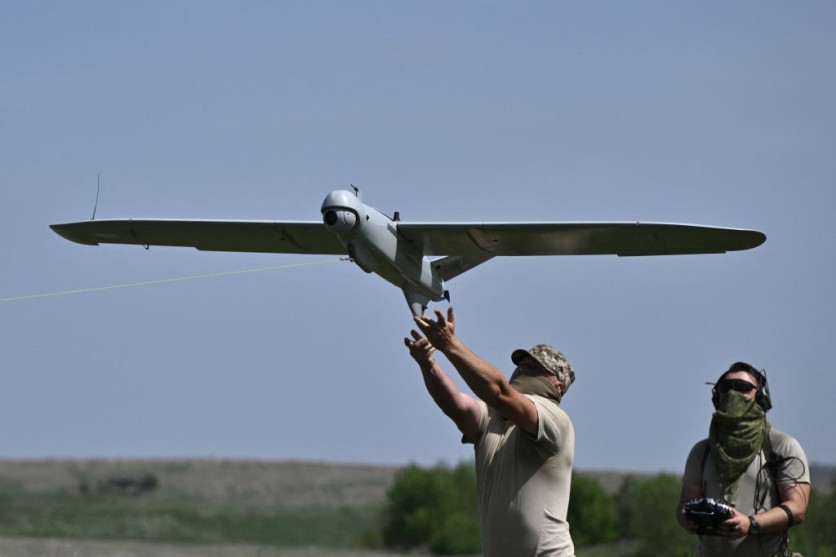Austria has recently raised the alarm on the urgent need for global action to regulate artificial intelligence (AI) in weapons systems amid growing concerns over the development of so-called 'killer robots," Reuters reports.
On Monday, April 29, Austria hosted a conference to revive discussions on this pressing issue. At the meeting, Austria discussed the ethical and legal challenges posed by the advancement of AI technology in warfare.

(Photo: GENYA SAVILOV/AFP via Getty Images)
Austria Calls for Urgent Action on AI Weapons Control
During the conference, Austrian Foreign Minister Alexander Schallenberg stressed the necessity of agreeing on international rules and norms to ensure human control over AI weapons.
"We cannot let this moment pass without taking action. Now is the time to agree on international rules and norms to ensure human control," Schallenberg said.
He warned against the profound implications of allowing machines to determine "who lives and who dies," advocating for human oversight in critical decision-making processes.
The president of the International Committee of the Red Cross, Mirjana Spoljaric, echoed the need for decisive action.
"What we see today in the different contexts of violence are moral failures in the face of the international community," Spoljaric said.
Reuters tells us that years of UN discussions on lethal autonomous weapons (LAWS) have seen minimal progress, raising concerns about a shrinking window for action.
AI Warfare
The deployment of AI in warfare is no longer a theoretical concern but a present reality. Drones equipped with AI technology, like those in Ukraine, already demonstrate autonomous capabilities to find targets when communication with operators is disrupted.
Additionally, reports indicate that the United States is investigating the use of AI by the Israeli military to identify bombing targets in Gaza.
Concerns over the accuracy and reliability of AI systems have been raised, with examples ranging from misrecognizing objects to causing fatal accidents in civilian contexts.
Previous reports have shed light on the increasing integration of AI into military operations. The US military has confirmed the use of AI to identify targets for precision air strikes in the Middle East, with over 85 airstrikes guided by AI-driven algorithms. These strikes targeted facilities in Iraq and Syria.
Furthermore, the Pentagon's Collaborative Combat Aircraft (CCA) project aims to develop AI-powered drones to support human-piloted jets in combat scenarios.
Meanwhile, Ukraine's efforts to develop AI drones with image recognition targeting systems further highlight the global trend toward AI-driven warfare.
Earlier this month, The Telegraph reported that Ukraine is actively pursuing the development of drones equipped with image recognition targeting systems.
This initiative aims to enhance Ukraine's defense capabilities by creating drones that are more resilient to electronic interference and can autonomously identify and strike targets.
Stay posted here at Tech Times.
Related Article : Sierra Nevada Wins $13B Contract to Upgrade US Air Force Fleet with New 'Doomsday' Nightwatch Planes

ⓒ 2026 TECHTIMES.com All rights reserved. Do not reproduce without permission.




